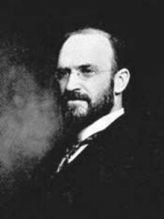The idea of a public library is a modern concept convinced in the mid-1800’s. It took years before free libraries were established across the country. One of the early proponents of public libraries in America was Melvil Dewey, who became the State Librarian of New York in 1888.
Today Dewey is best remembered as the originator of the book classification system that carries his name, as well as a founder of the American Library Association. What is not well remembered is the social agenda that powered his belief in public libraries. In a recent article on “The Establishment” web site called Banishing The Ghost Of Melvil Dewey: How Public Libraries Are Outgrowing Their Classist Roots, author Anna Gooding-Call shares this view of Dewey:
 “He was a zealous librarian celebrity, famously arrogant, and completely committed to the idea that the public could only improve themselves if they understood and embodied Christian morality. Dewey could provide this education with books, which would “elevate” them through a system of ideologically coordinated public libraries. When shown the foundation of Western literature—ran the logic—readers would understand how society functioned as well as their place within it. The result would be literate but passive components of a capitalist machine. Public libraries would be its oil.”
“He was a zealous librarian celebrity, famously arrogant, and completely committed to the idea that the public could only improve themselves if they understood and embodied Christian morality. Dewey could provide this education with books, which would “elevate” them through a system of ideologically coordinated public libraries. When shown the foundation of Western literature—ran the logic—readers would understand how society functioned as well as their place within it. The result would be literate but passive components of a capitalist machine. Public libraries would be its oil.”
Read the rest of this fascinating article that examines how libraries today are adjusting to a present much different from what Dewey ever imagined.
